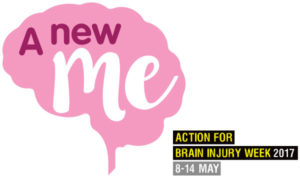
A local charity has found most brain injury survivors feel like a different person after sustaining their injury.
According to a study of more than 860 respondents around three quarters (74%) felt like a new person after sustaining their brain injury.
For many survivors the impact of coming to terms with losing their old self was entirely negative.
But many others reported a surprising degree of positivity – with some going as far as acknowledging the anniversary of their injury as ‘a new birthday’.
The study has been issued as part of Headway Suffolk’s new campaign entitled A New Me, which aims to give a voice to those affected by brain injury in order to highlight the hidden effects.
The charity hopes the findings will help to increase understanding of brain injury among the public, as well as health and social care professionals.
The study found:
- 74% of brain injury survivors feel like ‘a new person’ following their injury.
- 77% of brain injury survivors feel friends and family do not understand the effects of their injury.
- 56% of respondents reported their brain injury had had a negative impact on family life.
- 74% of people felt their social life was worse – with 60% of people feeling that their friends did not understand their injury.
- 69% of people felt their self esteem was worse.
- 62% of respondents acknowledge the anniversary of their injury; of those who positively commented on their anniversary, 1 in 10 explicitly mentioned acknowledging it as a new birthday.
“We have always known that brain injury can affect personalities as well as a person’s cognitive and physical abilities,” said Helen Fairweather, Chief Executive of Headway Suffolk. “This study, however, sheds light on just how lives and futures can be altered an instant as a result of sustaining a brain injury.
“We often hear people tell us that their husband or wife is not the person they married, or that the person they knew didn’t really return from the hospital.
“Coming to terms with the fact that you have not only lost the life you once led, but also the person you once were must be unimaginably difficult.
“People often associate brain injury with impacting cognitive or physical skills, such as memory, speech, or movement. However, it can also change personalities and our behaviours, which can have a dramatic impact on our relationships and support networks.
“What is clear from this study is that the experiences of those affected are unique and, while some will understandably struggle to accept the new person they have become, others positively embrace the change by celebrating the anniversary of their injury as a ‘second birthday’.
“This shows that with the right help and support, there can be life after brain injury.”
For further information or to download the full report, visit www.ANewMe.org.uk.